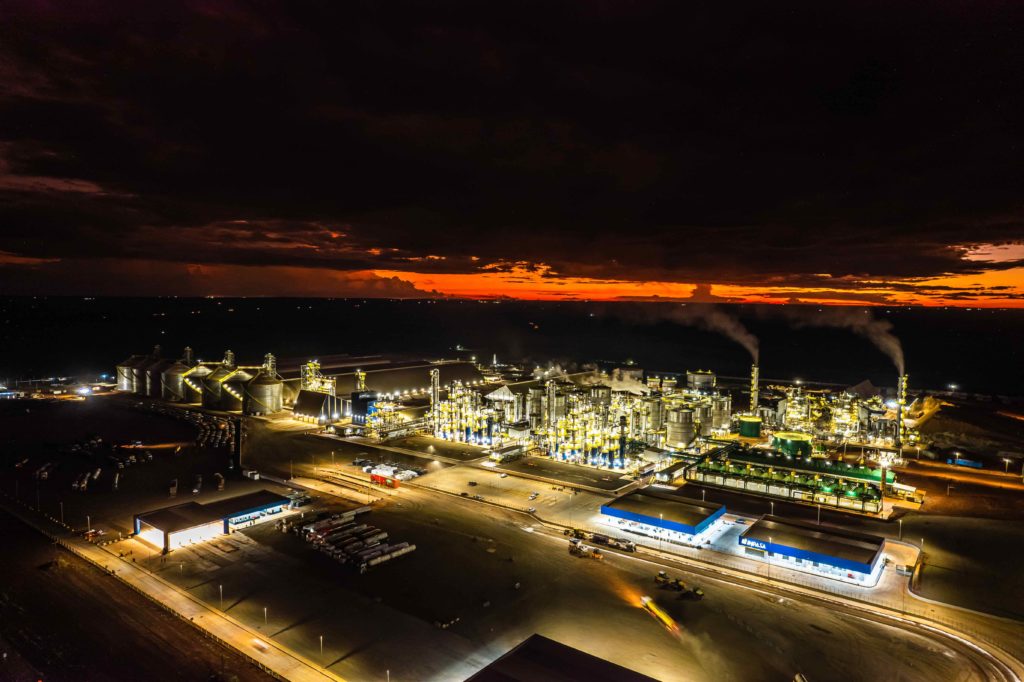São Paulo – Founded in 2006 in the municipality of Nueva Esperanza, in Paraguay, Inpasa is currently one of the leading producers of maize byproducts in Brazil. It processes 7.5 million tonnes of maize annually and produces 3.5 billion liters of ethanol. The company also produces two derivatives already exported to Arab countries: Corn oil and DDGS, a supplement for animal feed. One of the company’s goals, as a member of the Arab Brazilian Chamber of Commerce (ABCC), is to expand sales to the Middle East and North Africa (MENA).
Although it was founded in Paraguay, Inpasa is controlled by Brazilian partners. It was built up from other companies. According to Inpasa’s vice-president, Rafael Augusto Ranzolin, after overcoming technical challenges, Inpasa proved viable by using maize as a raw input for a family of “technological, innovative and versatile” derivatives. In the following years, Inpasa opened plants in the city of San Pedro, also in Paraguay, and the cities of Sinop and Nova Mutum, in the Brazilian state of Mato Grosso. The most recent unit in Dourados (pictured), Mato Grosso do Sul, started operations in 2022.
It is from these factories that corn ethanol, DDGS (Dried Distillers Grains with Solubles), and corn oil, among other products, come out. DDGS is a supplementary source of proteins that can integrate between 8% and 15% of animal feed, depending on demand.
According to Inpasa’s DDGS and Oil Premium trader, Rodrigo Bicarato, Brazil exported 280,000 tonnes of the product in 2022 and could increase shipments to 600,000 tonnes this year. The main destination of these exports is Southeast Asia: Vietnam, Thailand, and Indonesia. Among the Arab countries, importers are Morocco, Egypt, and Saudi Arabia. DDGS are also shipped to customers in Spain and the United Kingdom (Europe), Jamaica (Caribbean), South Korea (Asia), and New Zealand (Oceania). The United States is the primary global exporter of this input, with a 90% share of the 12 million tonnes produced yearly.
“The Arab countries have a demand for the product, and there is potential to grow. The big challenge is always distribution. Generally, to the Middle East, the cargo is taken in Panamax-type ships, sharing space with other products. That is, on the same ship, distributors combine either maize and DDGS or soy bran and DDGS,” said Bicarato. Panamax-class ships are among some of the largest vessels in operation.
Inpasa is also starting to enter the Arab market with corn oil, shipping to the United Arab Emirates, Oman, Qatar, Tunisia, and other nations. According to Bicarato, the company still does not have local representatives in MENA but is considering it “if our representativeness in the Arab market becomes relevant.”
Contact:
Inpasa
Phone: +55 66 3531-5494
Translated by Elúsio Brasileiro




